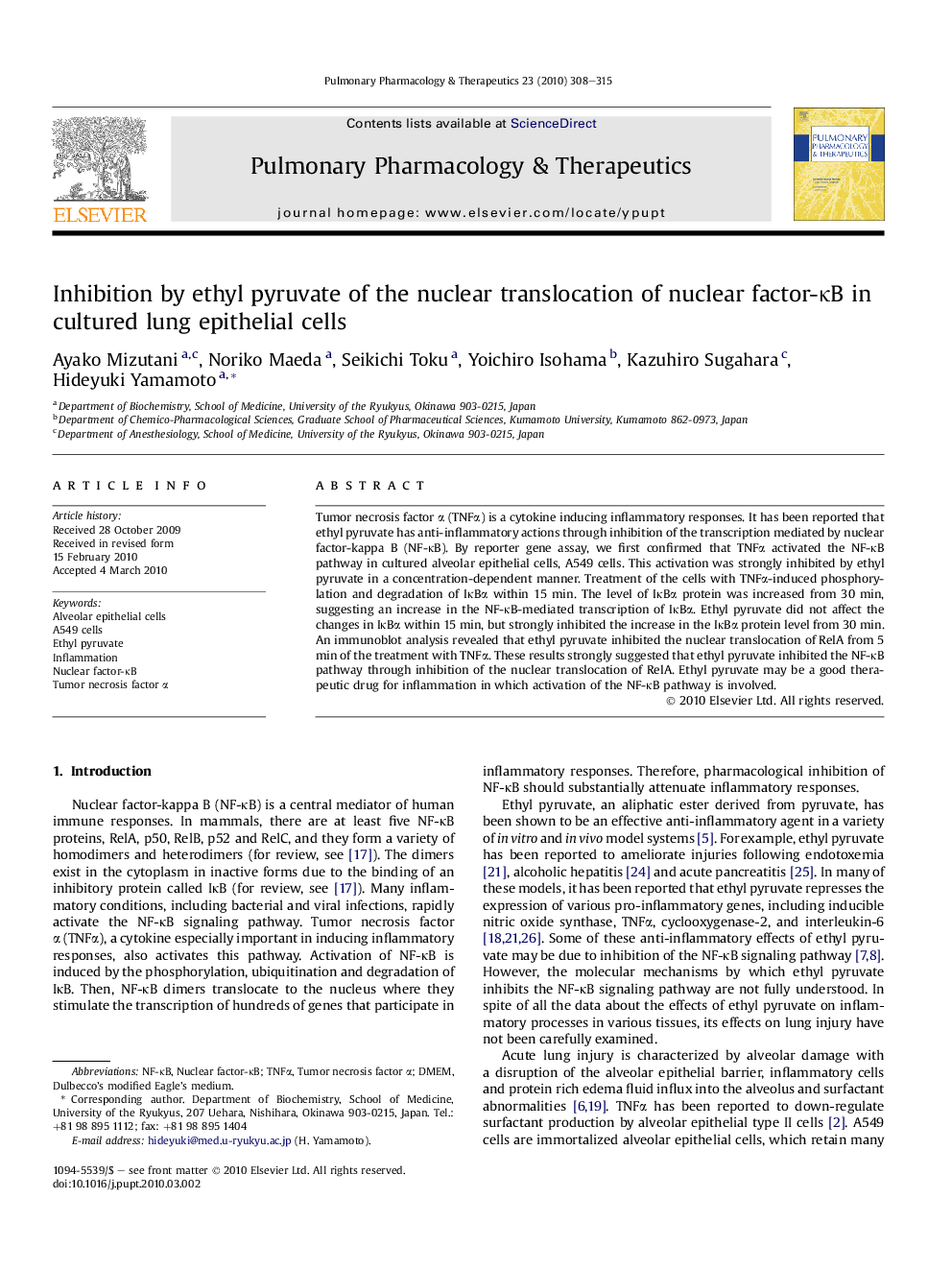| Article ID | Journal | Published Year | Pages | File Type |
|---|---|---|---|---|
| 2567445 | Pulmonary Pharmacology & Therapeutics | 2010 | 8 Pages |
Tumor necrosis factor α (TNFα) is a cytokine inducing inflammatory responses. It has been reported that ethyl pyruvate has anti-inflammatory actions through inhibition of the transcription mediated by nuclear factor-kappa B (NF-κB). By reporter gene assay, we first confirmed that TNFα activated the NF-κB pathway in cultured alveolar epithelial cells, A549 cells. This activation was strongly inhibited by ethyl pyruvate in a concentration-dependent manner. Treatment of the cells with TNFα-induced phosphorylation and degradation of IκBα within 15 min. The level of IκBα protein was increased from 30 min, suggesting an increase in the NF-κB-mediated transcription of IκBα. Ethyl pyruvate did not affect the changes in IκBα within 15 min, but strongly inhibited the increase in the IκBα protein level from 30 min. An immunoblot analysis revealed that ethyl pyruvate inhibited the nuclear translocation of RelA from 5 min of the treatment with TNFα. These results strongly suggested that ethyl pyruvate inhibited the NF-κB pathway through inhibition of the nuclear translocation of RelA. Ethyl pyruvate may be a good therapeutic drug for inflammation in which activation of the NF-κB pathway is involved.
